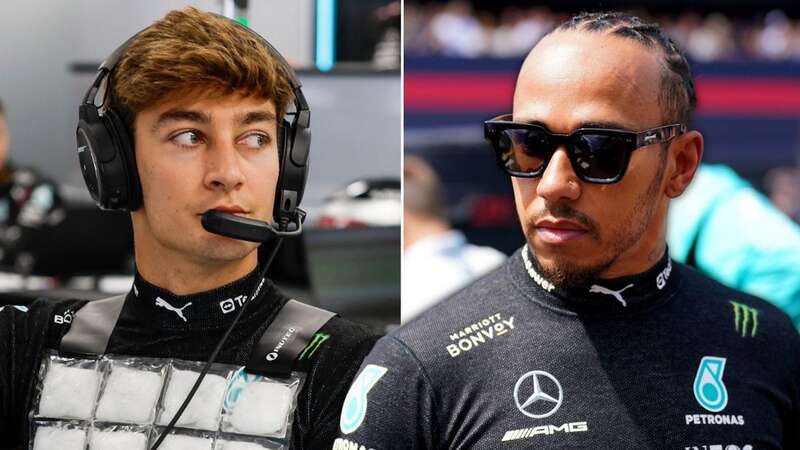
Mercedes vowed to learn from the miscommunication which to an on-track flashpoint involving Lewis Hamilton and George Russell at the Belgian Grand Prix.
It happened during qualifying for the Sprint on Saturday. Hamilton felt he had the pace to secure a front-row start for the short-form race later that day, but he never got the chance to test that theory.
Russell locked up directly ahead of him as they embarked on their respective flying laps, compromising both Mercedes drivers and making sure they would not improve on their times. After the session, Sky's Martin Brundle said Hamilton had been "mugged" by his team-mate and suggested Russell should apologise.
Qualifying only seventh, Hamilton said after: "Not happy about it, obviously... the communication was pretty poor. It was difficult to understand. We got to the last corner, there were seven cars, or whatever, trundling around.
"We were led to believe that we didn't have any more time left which is why we were pushing. But it turns out that we had plenty of time. Then, obviously, with George, like... it's the way it is."
 Inside the driver call which upset Red Bull and changed the course of F1 history
Inside the driver call which upset Red Bull and changed the course of F1 history
The team's chief technical officer Mike Elliott made a point of stressing how tough it is to time things perfectly in such a scenario. But he admitted that communication could have been better and said changes would be made after studying the data and what went wrong.
"Well, in order to explain that I think I first need to explain how difficult it is to get right in the first place," he said in a video released by the team. "When you've got a track that is drying it is nearly always the case the quickest lap is going to be the very last lap of the run.
"So your first laps are about getting a banker lap in and then, as you get to the end of the session, you want to be at the right place so you are just about crossing the line at the end of the session with your tyres in the right window.
"So, we are pretty much heading towards that but what we could see was in the last corners, so in 18 and 19, where you get to open the lap there was a lot of queuing, a lot of cars there, and so we were worried about getting over the line before the session ended. And we were asking our drivers to speed up, they thought they had less time available than they really did and as a result of that we ended up with our two cars too close together.
"As it happened, I think a number of cars were disadvantaged. A number of the cars were far too close together, so we weren't the only ones that were struggling. Unfortunately for us, our two drivers tripping over each other pretty much meant that we didn't get the laps that we wanted and therefore didn't get the Sprint qualifying result we really hoped for.
"As always we'll go back, we'll review the footage, we'll review the radio communications and we will see what learnings we can extract, work out how we can improve for the future. I am definitely sure there are some learnings we can extract from this weekend."
Read more similar news:
Comments:
comments powered by Disqus

































